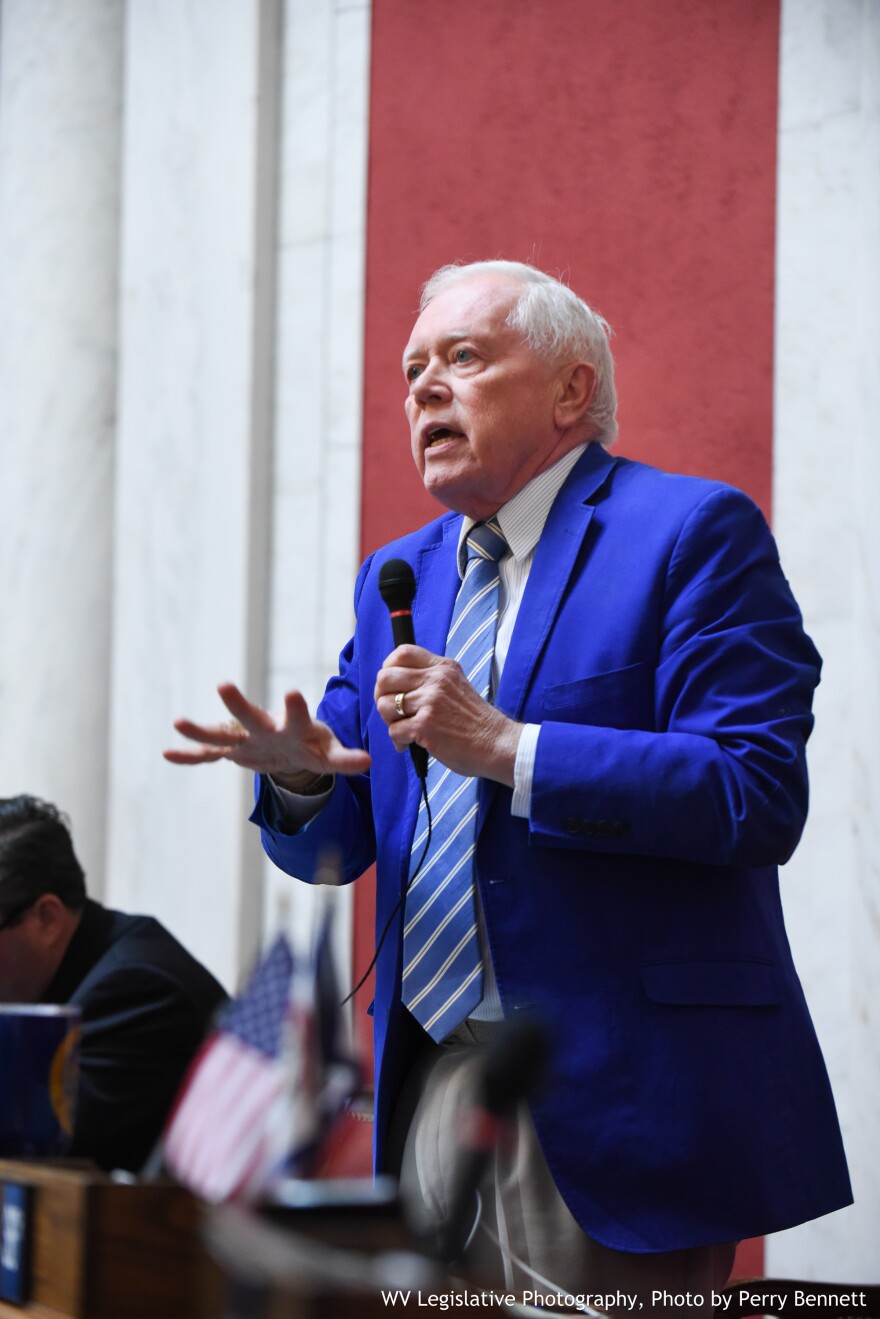Morrisey: Tourism Can Help W.Va. Grow
Tourism added $9 billion to West Virginia’s economy last year. And Gov. Patrick Morrisey wants to see that grow.
Continue Reading Take Me to More News
A bill increasing penalties for drug traffickers was largely the focus of the House floor session Friday. The bill is part of the House leadership’s plans to crack down on people selling drugs in West Virginia to curb the substance abuse epidemic.
House Bill 2648 would increase the penalties for trafficking or manufacturing a controlled substance while in the presence of a minor, making it a felony. The bill carries a penalty of a three year prison term without the ability to receive parole.
The state Division of Corrections was asked to estimate the cost of the bill, but in the fiscal note, the division said they were unable to estimate how many new offenders would be sentenced. The division did say, however, that each new offender would cost the state about $28,000 per year.
The high cost was a concern for some lawmakers, including Delegate Larry Rowe, a Democrat from Kanawha County. Rowe says it’s unlikely most of the people convicted under the bill would be major drug traffickers, but addicts who need treatment.

“Every single day we’ve been in here, except the first few, we have had a bill to raise the penalties on a crime that already exists,” Rowe noted, “We’ve just got to stop doing it, and the economic argument’s very, very wise. We are spending a fortune on corrections; we are being ruined by the amounts of money we spend on corrections as crisis response, when we ought to be spending that same amount of money on prevention.”
Delegate Kelli Sobonya, a Republican from Cabell County, is one of the sponsors of the bill. She argued protecting children in the state, no matter the cost, is what’s important.
“We can talk about the cost of incarceration, but you know, we pass legislation and penalties for two reasons, to be used as a deterrent if it’s high enough, it can be a deterrent, hopefully, you know, people won’t do that behavior, but you know, most likely addicts, they’re gonna do it anyway, because they’re addicted. They make those bad decisions, because they do have an addiction,” Sobonya said, “But you know, for instances like this, I think, you know, that parents need to be held responsible for endangering their children.”
Delegate Mike Pushkin, a Democrat from Kanawha County, opposed the bill, because he says it does nothing to assist in the treatment of addiction, which is where lawmakers should be focused if they want to curb substance abuse in the state.
“These folks aren’t thinking in the long term. They’re not thinking about the penalty, they’re thinking about what’s right in front of ‘em,” Pushkin explained, “And, while I wish this bill, this legislation, would put an end to these stories that we’re hearing; I’m afraid that it will not, and what it will do is put a lot more people who could possibly benefit from treatment; it’s gonna give them longer sentences; not allow them to parole.”

Several lawmakers questioned House Judiciary Chair John Shott about hypothetical situations that could come up should the bill take effect. Shott says while those situations may deserve consideration, the law allows local prosecutors some discretion.
“There’s always a hypothetical that pulls at your heartstring in these cases,” Shott noted, “There’s always a hypothetical, but those hypotheticals are based on the absolute worst case scenario. They’re based on an assumption that our prosecutors don’t deserve our trust, they’re based on the assumption that we don’t have any trust or confidence in the legal system to do the right thing, or the common sense and good judgement of our jurors to see through our situation, and do the proper result, or in our judges.”
After over an hour of debate, House Bill 2648 passed 85 to 12 and now moves onto the Senate for consideration.